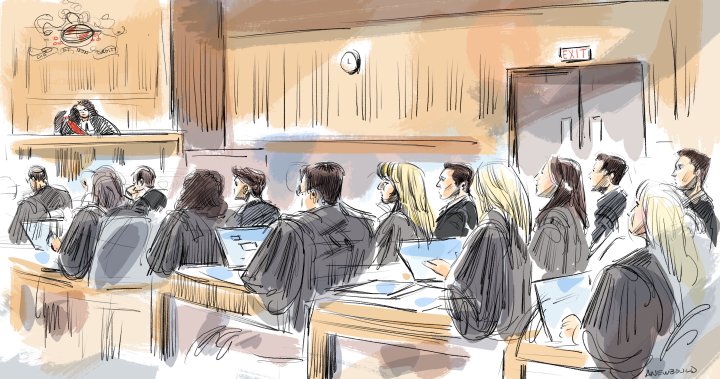The ongoing trial involves five former members of Canada’s 2018 world junior hockey team—Michael McLeod, Carter Hart, Alex Formenton, Dillon Dube, and Callan Foote—who face sexual assault charges related to an incident at a London, Ontario hotel in June 2018. The accusations arise from events following a Hockey Canada gala celebrating their gold medal victory. All accused have pleaded not guilty, with the prosecution asserting that the complainant, who was 20 at the time, was assaulted while intoxicated and did not provide consent for multiple sexual acts. The trial, which began jury selection in April 2025, is expected to last approximately eight weeks and has attracted significant public attention amid broader discussions about hockey culture and institutional accountability in Canada.
Details of the Allegations and Legal Proceedings
The charges stem from an incident that allegedly took place in June 2018, shortly after Canada’s world junior hockey team celebrated winning the gold medal at a gala event in London, Ontario. The complainant, then aged 20, claims she was sexually assaulted by the accused while intoxicated during a private gathering at a hotel. According to the prosecution, multiple non-consensual sexual acts occurred during the event, with the complainant unable to provide consent due to her level of intoxication.
All five accused—Michael McLeod, Carter Hart, Alex Formenton, Dillon Dube, and Callan Foote—have entered not guilty pleas. Their defense teams have challenged the credibility of the accusations and the interpretation of the events, emphasizing the complexity of consent and mutual understanding in social situations involving alcohol.
Trial Proceedings and Public Interest
The trial commenced with jury selection in April 2025 and is anticipated to continue for around eight weeks. Throughout the proceedings, detailed testimonies from both the complainant and the defendants, as well as witness statements and expert analyses, are being examined to establish the facts surrounding the incident.
The case has garnered substantial media coverage and public discourse, reflecting heightened sensitivity to issues of sexual misconduct within sports environments, particularly hockey, which holds a prominent place in Canadian culture. The trial coincides with increased demands for transparency, safer environments for athletes and attendees, and reforms aimed at eliminating sexual violence and misconduct in sports organizations.
Broader Implications for Hockey in Canada
This high-profile trial has intensified scrutiny on Hockey Canada and associated institutions, prompting calls for comprehensive reviews of policies related to player conduct and organizational accountability. Stakeholders across the hockey community, including players, officials, and advocates, have emphasized the importance of fostering respect, safety, and ethical behavior both on and off the ice.
In response to the allegations and public pressure, Hockey Canada has announced measures aimed at strengthening education, prevention, and reporting mechanisms to address misconduct. The outcome of this trial may potentially influence future protocols and the cultural landscape of hockey in Canada.
Ongoing Coverage and Updates
As the trial progresses, updates will be provided to reflect new developments and courtroom decisions. Given the sensitivity and evolving nature of the case, all reported information is subject to verification as the judicial process unfolds.
The trial of the five former members of Canada’s 2018 world junior hockey team marks a significant moment in addressing allegations of sexual assault within the sport’s community. As the legal process continues, it not only seeks to determine the facts of the case but also highlights broader concerns about consent, accountability, and cultural change in Canadian hockey. The outcomes may have lasting implications for organizational practices and public trust in hockey institutions. Ongoing coverage will remain essential to ensure transparency and an informed public as new information emerges throughout the trial.

